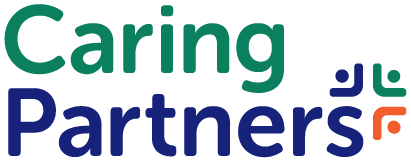Home Care Agencies
Sales Tips
How (and When!) to Talk About Home Care Rates

When seniors and their loved ones begin to research home care options, there is often a precipitating event, like a fall, that highlights the need for care. This urgency can lead to lots of questions about available services, hours needed – and of course, price.
It’s easy to answer these questions on the phone during the initial call, but at times this approach can be a disservice to the senior or loved one. To much information at once may be overwhelming, and early discussion of pricing can lead to sticker shock. On the other hand, they might not realize exactly how much help they need and underestimate the hours needed per week. In both scenarios, you can lose the opportunity to earn a new client for what may have been a great fit. Instead, be intentional with what information you cover in the initial call and what you choose to discuss during an at-home assessment.
Initial Call
During the initial call, prospects often want to know the cost per hour, and you often want to know how many hours the client needs. Both of you are asking the same question, “How valuable is this potential relationship?” So, ask questions to show your value first! Be kind, be empathetic, be curious, and avoid the temptation to talk about price.
When a prospect inquires about your rates during the initial call, redirect the conversation. You can say something very simple and empathic, such as, "Before we go into that, I'd really like to understand how we can help you. What have you been experiencing lately?" Listen carefully and ask clarifying questions, then schedule an in-home assessment.
In-Home Assessment
Before you begin the assessment, recap the reason why you're there and verify the prospect’s basic information - but don’t talk about price right away. Instead, ask questions to uncover the prospect’s needs. Learn about ADLs and chronic conditions. Ask who cooks the meals, does the laundry, cleans the home. Find out about hobbies and interests that the potential client loves to do but cannot anymore.
As you discover ways your agency can assist, make a note with an estimate of the hours needed to meet each need. Once you uncover all the pain points, focus on the solutions you can provide and present your care plan.
Resist the temptation to talk about money and hours just yet! Ask for the prospect’s opinion of the care plan and refine it as needed. Seek to understand the prospect’s point of view and demonstrate the value of your agency. Once you and the prospect agree on the care needed, then talk about hours, cost, and payment.
Follow this process and you will experience two benefits to your agency:
You will complete more at-home assessments, which means you will convert more leads into new clients.
By starting with the need, you'll uncover more opportunities for your agency to help, and those clients will often take more hours.
Not only will this process help you grow your client base and weekly revenue, seeking to understand and create a care plan matched specifically to their needs will lead to happier, longer-lasting client relationships.
You May Also Like This
Home Care Agencies
Sales Tips
How (and When!) to Talk About Home Care Rates

When seniors and their loved ones begin to research home care options, there is often a precipitating event, like a fall, that highlights the need for care. This urgency can lead to lots of questions about available services, hours needed – and of course, price.
It’s easy to answer these questions on the phone during the initial call, but at times this approach can be a disservice to the senior or loved one. To much information at once may be overwhelming, and early discussion of pricing can lead to sticker shock. On the other hand, they might not realize exactly how much help they need and underestimate the hours needed per week. In both scenarios, you can lose the opportunity to earn a new client for what may have been a great fit. Instead, be intentional with what information you cover in the initial call and what you choose to discuss during an at-home assessment.
Initial Call
During the initial call, prospects often want to know the cost per hour, and you often want to know how many hours the client needs. Both of you are asking the same question, “How valuable is this potential relationship?” So, ask questions to show your value first! Be kind, be empathetic, be curious, and avoid the temptation to talk about price.
When a prospect inquires about your rates during the initial call, redirect the conversation. You can say something very simple and empathic, such as, "Before we go into that, I'd really like to understand how we can help you. What have you been experiencing lately?" Listen carefully and ask clarifying questions, then schedule an in-home assessment.
In-Home Assessment
Before you begin the assessment, recap the reason why you're there and verify the prospect’s basic information - but don’t talk about price right away. Instead, ask questions to uncover the prospect’s needs. Learn about ADLs and chronic conditions. Ask who cooks the meals, does the laundry, cleans the home. Find out about hobbies and interests that the potential client loves to do but cannot anymore.
As you discover ways your agency can assist, make a note with an estimate of the hours needed to meet each need. Once you uncover all the pain points, focus on the solutions you can provide and present your care plan.
Resist the temptation to talk about money and hours just yet! Ask for the prospect’s opinion of the care plan and refine it as needed. Seek to understand the prospect’s point of view and demonstrate the value of your agency. Once you and the prospect agree on the care needed, then talk about hours, cost, and payment.
Follow this process and you will experience two benefits to your agency:
You will complete more at-home assessments, which means you will convert more leads into new clients.
By starting with the need, you'll uncover more opportunities for your agency to help, and those clients will often take more hours.
Not only will this process help you grow your client base and weekly revenue, seeking to understand and create a care plan matched specifically to their needs will lead to happier, longer-lasting client relationships.

